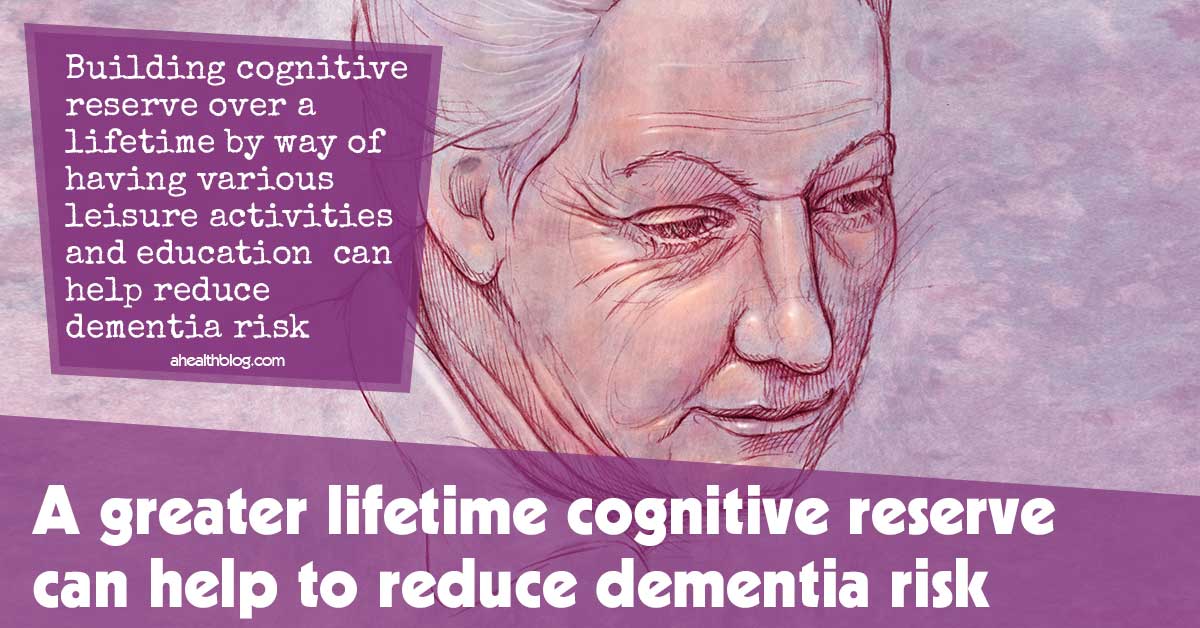According to a study, dementia can be delayed or prevented, even in individuals who are more predisposed to the condition.
The study reveals that building cognitive reserve, or mental resilience, over a lifetime by way of having various leisure activities, jobs, education and socializing can reduce dementia risk, even in individuals who are genetically predisposed to the condition or had low childhood cognition.
The researchers discovered that factors which include reading and occupation ability, participating in artistic activities, sports, religious groups, or clubs, as well as educational achievement by 26 years old, could affect the cognitive reserve of the brain. The study indicates that carrying on learning throughout life could help in protecting the brain, even in individuals with lower childhood cognitive test scores.
Prior research has found that individuals with low childhood cognitive scores have a higher risk of cognitive decline in old age compared to individuals with high childhood cognitive scores.
The study consisted of 1,184 individuals born in 1946 and who were cognitively tested at the age of 8 and again at the age of 69. A cognitive reserve index consisted of a combination of education level of individuals at 26 years old, taking part in uplifting leisure activities at 43 years old, and occupation till 53 years old. Reading ability was also tested at 53 years old as an overall lifetime learning measure apart from occupation and education.
The maximum total cognitive test score the individuals were given at 69 years old was 100. This age group’s score was 92 on average, with 53 being the lowest score and 100 being the highest score.
The researchers observed that a higher reading ability, a higher cognitive reserve index, and higher cognitive skills in childhood were all linked to higher cognitive test scores at 69 years old. Researchers observed an old-age cognitive test score increase of an average 0.10 points for each childhood cognitive test score unit increase. A cognitive score increase of an average 0.07 points was observed for each cognitive reserve index unit increase, and a cognitive score increase of an average 0.22 points was seen for each reading ability unit increase.
Individuals having a higher education scored an average of 1.22 points more compared to individuals without any formal education. Individuals who took part in 6 or more leisure activities which included gardening, social activities, volunteer work, clubs, and adult education classes, scored an average of 1.53 points more compared to individuals who took part in up to 4 leisure activities. Individuals with an intermediate or professional level job scored an average of 1.5 points more compared to individuals with unskilled or partly skilled occupations.
The researchers also discovered that cognitive test scores for individuals with higher reading ability and cognitive reserve index didn’t decline as quickly as individuals with lower scores, irrespective of their cognitive test scores at 8 years old.
A study limitation was that the individuals who carried on participating in the study until 69 years old could have better overall thinking skills, be more likely to have a social advantage, and be healthier compared to individuals who didn’t carry on participating in the study, and the study results might not be reflective of the general population.
Want to use our images on your site? Right click on image for embed code




















Discussion about this post